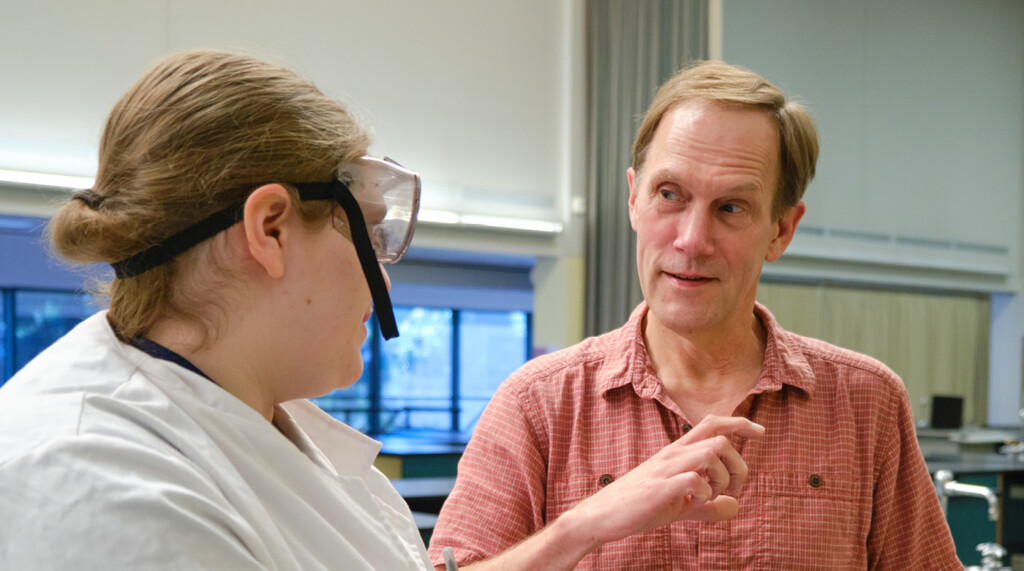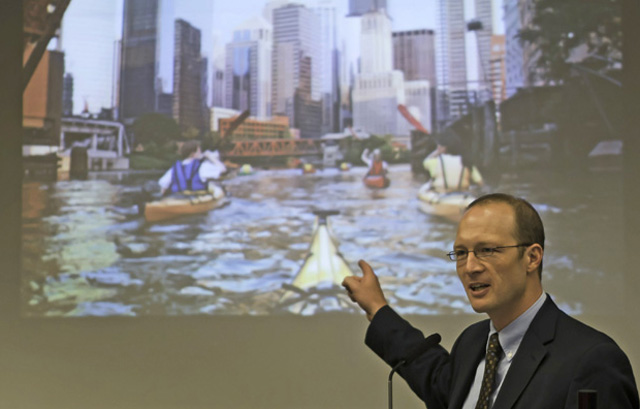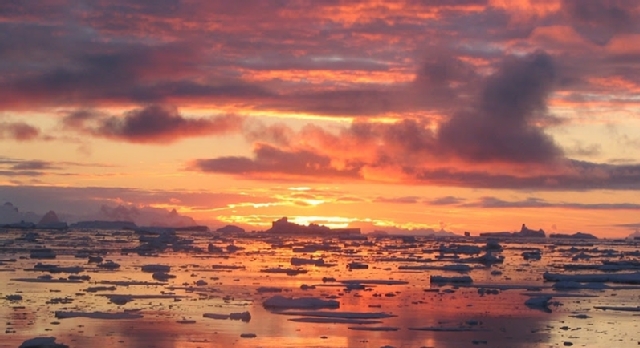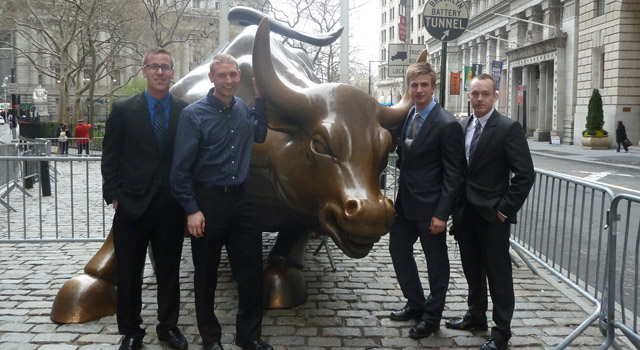Page 220 • (3,479 results in 0.068 seconds)
-
Careers in Electrochemistry Posted by: nicolacs / November 1, 2021 November 1, 2021 Apply Now: Application for Fall 2022 (Class of 2023) Electrochemistry underlies technologies critical to avert the worst effects of climate change. Get the knowledge and training needed to help address the world’s biggest challenges! Chemistry, physics, engineering are all appropriate backgrounds – each brings unique complementary skill sets. Requirements: Passion for team-driven science and technology
-

The Choir of the West: PLU’s Premier Choral Ensemble Keeps Particularly Busy Posted by: Mandi LeCompte / November 7, 2014 Image: Dr. Richard Nance, left, conducts a Choir of the West rehearsal on Nov. 3, 2014. (Photo: Shunying Wang ’15) November 7, 2014 By Shunying Wang ’15 PLU Marketing & Communications Student Worker It’s an especially busy—and newsy—year for PLU’s renowned Choir of the West, including the return of Dr. Richard Nance, Director of Choral Activities and conductor of the choir
-

that is constantly innovating. He does this by bringing students into his lab to help him build a better battery. It’s a goal he has been working toward for more than a decade. Over the years, close to 30 students have been involved in the process.Backed by a $213,500 three-year research award from the National Science Foundation that Waldow received last spring, four students spent 10 weeks this past summer participating in intensive lab experiences. “The first week or two of working in the lab
-

in the northwest United States, and the unique ways the sea has influenced their culture and identity. Reid prepared the following abstract for his lecture: “Twenty-five years ago, the Makah Nation successfully hunted a gray whale. This action drew the ire of animal rights activists who often rooted their criticism in racism and stereotypes of Indigenous authenticity. Drawing from the tribal nation’s historical and contemporary relationship with the sea, this talk will focus on Makah statements
-
,” Yakelis said. “But the development of scientific ideas really happens in and out of the lab. You have to be able to communicate well to explain the significance of your work to colleagues and to the public.” Students spend anywhere from a few months to a year or more working on projects with faculty. Many travel beyond the boundaries of campus to conduct research or share their work at professional conferences. For example, Chris Hamre ’07 and chemistry professor Dean Waldow spent nearly two-and-a
-
college. Others have transferred from a four-year university and are simply looking for something more to their liking. In short, PLU’s transfer population is a diverse mix of students from all walks of life. And that might be exactly why many on campus see the influx of such students as such a good thing. “The one thing they do have in common – they are focused; going to college is an opportunity they are not going to waste,” Pretty said. “And they have a depth of experience that traditional age
-
endeavored to move a several-hundred – pound whale skeleton from the chicken coop – located at the Washington Department of Fish and Wildlife storage facility in Lakewood – to PLU earlier this year. He propped up the third – obviously older jawbone- in the corner, and then turned his attention to the other two. With a heave, these were placed in the back of a pickup. On to the next group of bones. For two hours, Behrens, along with Audrey Thornburg, the Rieke Science Center’s biology lab manager, and
-

September 30, 2011 Featured speaker Benjamin Stewart, a professor and chair at the Lutheran School of Theology in Chicago, gives the example of the Chicago River as a waterway that is viewed in a different light by varying parties.(Photo by Igor Strupinskiy ’14) The deep and powerful flow of mercy and justice. A debate on water in today’s world By: By Barbara Clements Evidence of water as a force for destruction can be easily found, both in the headlines and the Bible. There are the floods
-

trade agreements at the time, Barlow noticed that water was listed as a tradable commodity. Odd, she thought at the time. And unfair. “I thought (water) should be free for all, and considered a resource,” she mused before she spoke this spring at the Wang Center Symposium, which focused on water – both its growing scarcity and value, as well as its impact on socioeconomic trends. “I guess since I wasn’t a lawyer or a scientists, I saw these issues with fresh eyes,” said Barlow, who has a degree in
-

May 2, 2012 Mary Lund Davis Student Investment Club board members Cameron Lamarche ’12, Kirk Swanson ’12, Phillip Magnussen ’13 and Arne-Morten Willumsen ’13 pose in front of the Wall Street Bull in New York City during the G.A.M.E. Conference. Lutes on Wall Street By Chris Albert This spring, five PLU students and one professor were checking into their hotel in New York City for the G.A.M.E (Global Asset Management Education) Forum, when it dawned on the students they were really here and this
Do you have any feedback for us? If so, feel free to use our Feedback Form.


